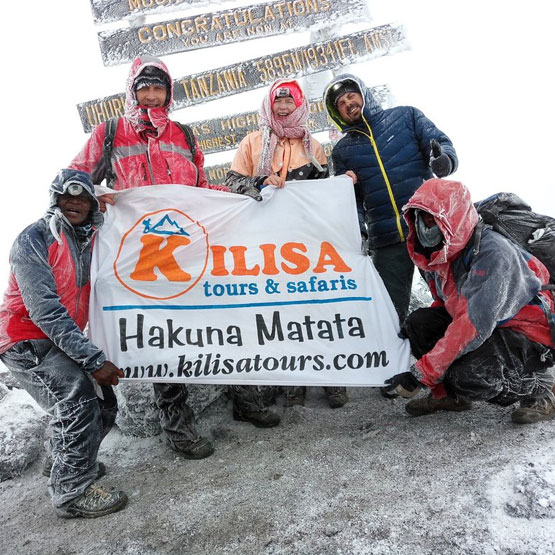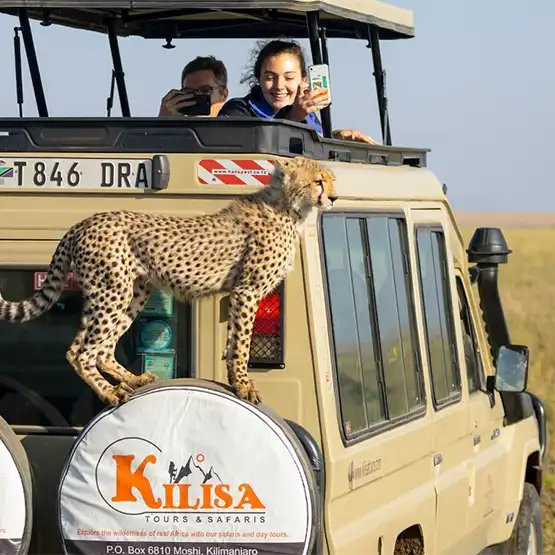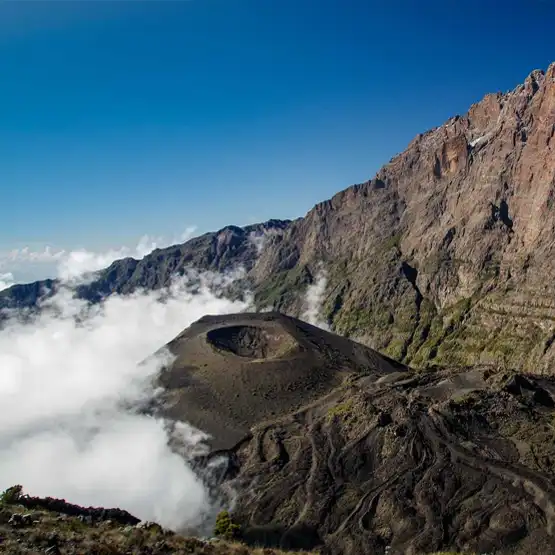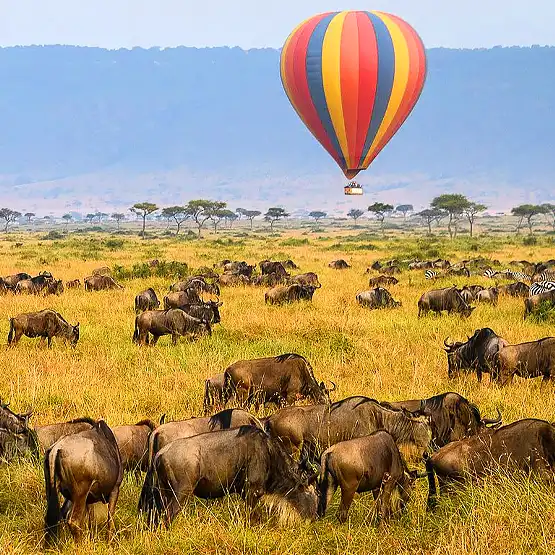Climbing Africa’s highest peak is an achievement that beckons adventurers from around the globe, yet proper preparation is crucial. One of the most critical aspects involves asking the right questions when booking a Kilimanjaro climbing tour. Are you well-informed about altitude sickness, or the varying weather conditions you’ll face? Knowing these things can make or break your experience.
Understanding the tour operator’s track record and safety measures is a key aspect of planning a successful climb. Historical data shows that experienced operators often have higher success rates and fewer incidents. Ensuring guides are knowledgeable about first aid and the mountain’s challenges can significantly enhance your journey. These questions aren’t just a formality; they’re the foundation of a safe and rewarding climb.

What Questions to Ask When Booking a Kilimanjaro Climbing Tour
When planning a Kilimanjaro climb, asking about the company’s experience is essential. Kilisa Tours, for example, has been guiding treks for years. Their long-standing reputation can help ensure a safe adventure. How many successful climbs have they led? This question can offer insight into their reliability.
Safety measures should be a top priority. Ask the tour operator what safety protocols they follow. Do they provide regular medical check-ups during the climb? Altitude sickness is common, and it’s important to know how they handle it. According to this post, understanding these protocols is crucial for your safety.
Guide qualifications are another critical aspect. Are the guides trained in first aid and mountain rescue? Knowing their training background provides peace of mind. Experienced guides can handle unforeseen challenges better. It’s always best to ask about their qualifications before booking.
Don’t forget to ask about the specifics of the route and duration. Kilimanjaro has several routes, each with its own difficulty and scenic views. What route will you take, and how many days will the trek last? These details can affect your overall experience. For more insights, you can check here is the article related to this.
Evaluating Kilisa Tours’ Experience and Reputation
When assessing Kilisa Tours, it’s vital to look at their years in business. Founded over a decade ago, they have plenty of experience in guiding Kilimanjaro treks. Their long history suggests reliability and a deep understanding of the mountain. This experience can provide peace of mind for climbers. Trusting seasoned professionals is always a good choice.
Reading reviews and testimonials is also helpful. Many past climbers share their experiences online. Positive reviews highlight the company’s strengths and areas where they excel. Neutral or negative reviews can pinpoint potential weaknesses. A balanced view helps you make an informed decision.
Another factor is Kilisa Tours’ affiliations and certifications. Being certified by reputable organizations adds to their credibility. Certifications often mean adherence to high safety and environmental standards. This can enhance your overall climbing experience. It’s an extra layer of assurance.
Lastly, take a look at their success rate. How many climbers reach the summit with their guides? A higher success rate usually indicates excellent preparation and support. According to customer reviews on their website, Kilisa Tours boasts a commendable success rate. This can boost your confidence in their services.
Understanding the Tour’s Safety Measures
Knowing the safety measures in place for your Kilimanjaro tour is crucial for a successful climb. One important aspect is the guide-to-climber ratio. A smaller group ensures more personalized attention. It allows guides to closely monitor each climber’s health and needs. This can be vital in emergency situations.
Medical check-ups are another key safety measure. Reliable tour companies, like Kilisa Tours, often conduct regular health assessments during the trek. These check-ups can help identify signs of altitude sickness early. Immediate treatment can prevent complications. Staying healthy is essential when climbing such a high peak.
Emergency protocols are also worth understanding. What happens if someone gets injured? A good tour operator will have clear plans in place. They should provide details about evacuation procedures. Knowing these protocols can offer peace of mind.
Lastly, inquire about the equipment used on the tour. Quality gear can make a big difference in safety and comfort. Ensure the company uses well-maintained tents and reliable communication devices. These tools help in dealing with the mountain’s unpredictable weather. Proper equipment is a cornerstone of a safe trek.
Assessing Guide Qualifications and Training
Evaluating guide qualifications is crucial when booking a Kilimanjaro climbing tour. Professional guides should have extensive experience climbing the mountain. They need to be familiar with all the routes. This ensures they can provide the best advice and make adjustments as necessary. Having an experienced guide can significantly improve your chances of reaching the summit.
Medical training is another essential qualification to consider. Guides should be trained in first aid and emergency response. Altitude sickness and injuries can occur, so knowing they can address these issues is reassuring. Regular training updates show a commitment to safety. This is a crucial factor in choosing the right tour company.
A good way to assess training is by asking specific questions. For instance, inquire about their certifications. Do they have wilderness first responder or mountain guide certification? This formal training indicates a higher level of preparedness. It adds to the overall safety of the trip.
Soft skills are just as important as technical competence. Guides with strong communication skills can make the journey more enjoyable. They help in team bonding and morale-boosting, which are important in challenging environments. Ask previous clients about their experiences with the guides. Positive feedback often indicates well-rounded, skilled guides.
Some tour companies offer additional training for their guides. This might include customer service workshops or advanced mountain rescue techniques. Companies that invest in their guides likely value your safety and experience. These ongoing educational programs are beneficial. They ensure guides remain knowledgeable about the latest safety practices.
Finally, consider the ratio of guides to climbers. It’s ideal to have more guides per climber for better supervision. This allows for more focused attention on individual climbers’ health and performance. A good ratio is one guide for every two or three climbers. This can ensure a safer and more enjoyable trek.
Clarifying Details about the Climbing Route and Duration
Understanding the specifics of the climbing route is essential for an enjoyable Kilimanjaro trek. The mountain offers several routes, each with unique features. The Machame route, for instance, is known for its scenic beauty but is more challenging. On the other hand, the Marangu route is shorter but less crowded. Knowing these details can help you choose a route that suits your fitness level.
The duration of the climb is another important factor. Different routes have varying lengths and durations. The Lemosho route typically takes about 7-8 days to complete. A longer duration allows better acclimatization. This can reduce the risk of altitude sickness and increase the chances of reaching the summit.
It’s also useful to ask about the daily itinerary. How many hours will you be trekking each day? What are the altitude gains each day? Having a detailed itinerary helps in preparing both mentally and physically. It ensures you know what to expect each day on the trail.
Weather conditions can greatly impact the climb. Kilimanjaro has distinct wet and dry seasons. The best times to climb are generally from January to March and June to October. During these months, conditions are more favorable. However, weather can change rapidly on the mountain, so be prepared for all scenarios.
Understanding the support services provided during the trek is crucial. Will there be porters to carry your gear? How are meals prepared and what will you be eating? Knowing about the available support services can increase your comfort level. Support services can make the climb more manageable and enjoyable.
Lastly, ask if the company offers acclimatization days. This extra time helps your body adjust to the higher altitude. Extra days can significantly improve your success rate. Companies like Kilisa Tours often include acclimatization days in their itineraries. This shows their commitment to your well-being and success on the climb.
Discussing Logistics and Support Services Provided
When planning your Kilimanjaro climb, understanding logistics is crucial. Firstly, clarify how your gear will be transported. Tour companies usually provide porters to carry heavy supplies. This allows you to focus on the climb itself. Knowing this can help you pack wisely.
Accommodations on the mountain vary depending on the route. Will you be sleeping in tents or huts? Some routes, like Marangu, offer huts for shelter. Other routes only provide tents. Understanding your living conditions helps you prepare better.
Next, consider the food and water situation. What kind of meals will be provided? Is there safe drinking water available? Good nutrition and hydration are vital for maintaining your energy levels. These logistics are key to a successful climb.
Emergency services are a critical aspect to discuss. What happens if you get injured or fall ill? Reliable tour operators have clear evacuation plans. They also carry necessary medical supplies. This ensures prompt medical attention if required.
Communication methods on the mountain are also important. How will you stay in touch with the outside world? Many companies use satellite phones or radios for emergencies. This ensures you can get help when needed. Effective communication adds a layer of security to your trek.
Lastly, ask about additional support services. Are there guides to assist with altitude acclimatization? Do they offer gear rental services? Knowing what extra services are available can enhance your experience. It’s always better to know beforehand.





